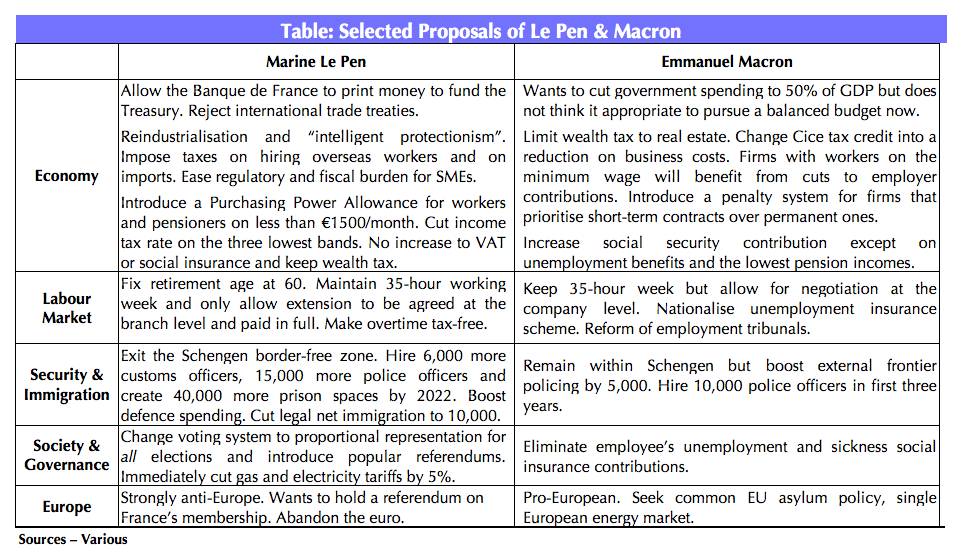As we edge closer to the unpredictable French presidential election, it’s worth taking a look at what the current favorites stand for – and how the markets are feeling about it.
Recent opinion polls suggest that center-right candidate François Fillon might be knocked out in the first round, which is scheduled to take place around late April, in light of a recently surfaced scandal involving his wife’s work as a parliamentary assistant.
And so, as things stand right now, analysts are arguing that it looks increasingly likely that the final showdown in May will be between far-right Marine Le Pen, the leader of the nationalist Front National, and centrist Emmanuel Macron, who is running as an independent.
In terms of policy, Le Pen recently outlined a plan to overhaul France, including her intention to hold a referendum on France’s membership in the European Union if the EU does not agree to redesign the union as a loose coalition of nations without a common currency or a border-free area. Additionally, she has stated her intention to exit the euro. On the flip side, Macron has presented himself as both pro-European and pro-business.
Below, their views on the economy, immigration, and Europe in general, courtesy of Capital Economics.
Notably, markets are feeling a bit wary of Le Pen's proposals.
"Le Pen's announcement of her radical vision for France unnerved euro-zone financial markets last week, with the gap between French and German 10-year government bond yields widening to its biggest since 2012," Jessica Hinds, European economist at Capital Economics, wrote in a note. "Macron is certainly the more reassuring choice."
"Perhaps unsurprisingly, we are skeptical that the [National Front] plan will revive the French economy," she continued. "Moreover, the economic and political chaos that would ensue from France leaving the euro and re-denominating its debts and the associated rise in borrowing costs would probably discourage investment."
Additionally, Hinds added that Le Pen's plan does little to address longer-run problems in France's economy such as the aging population.
The first round of France's elections will be on April 23 andthe second round will be on May 7.
Polls suggest that Le Pen would come out on top in the first round, but that she would be defeated in the second round - although, of course, things in politics could change quickly and it would be wise to regard opinion polls with a degree of caution.

